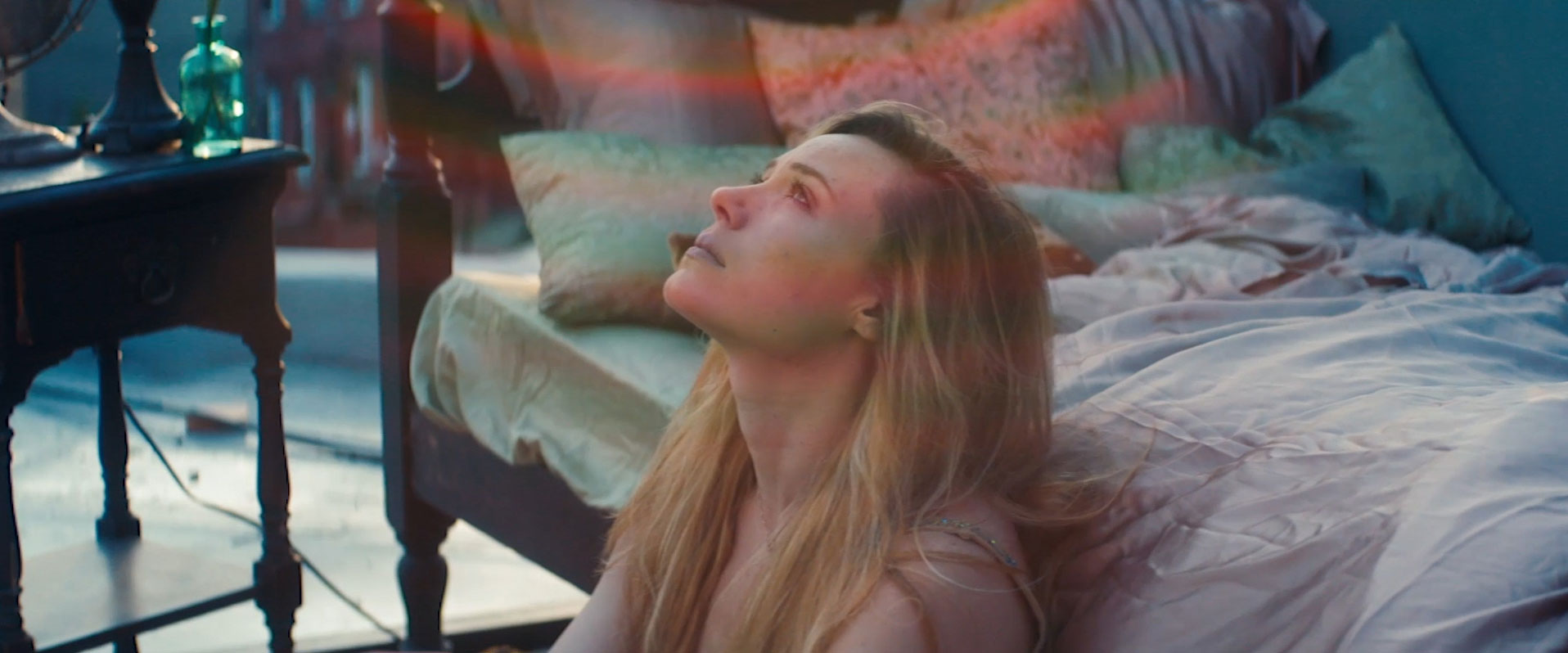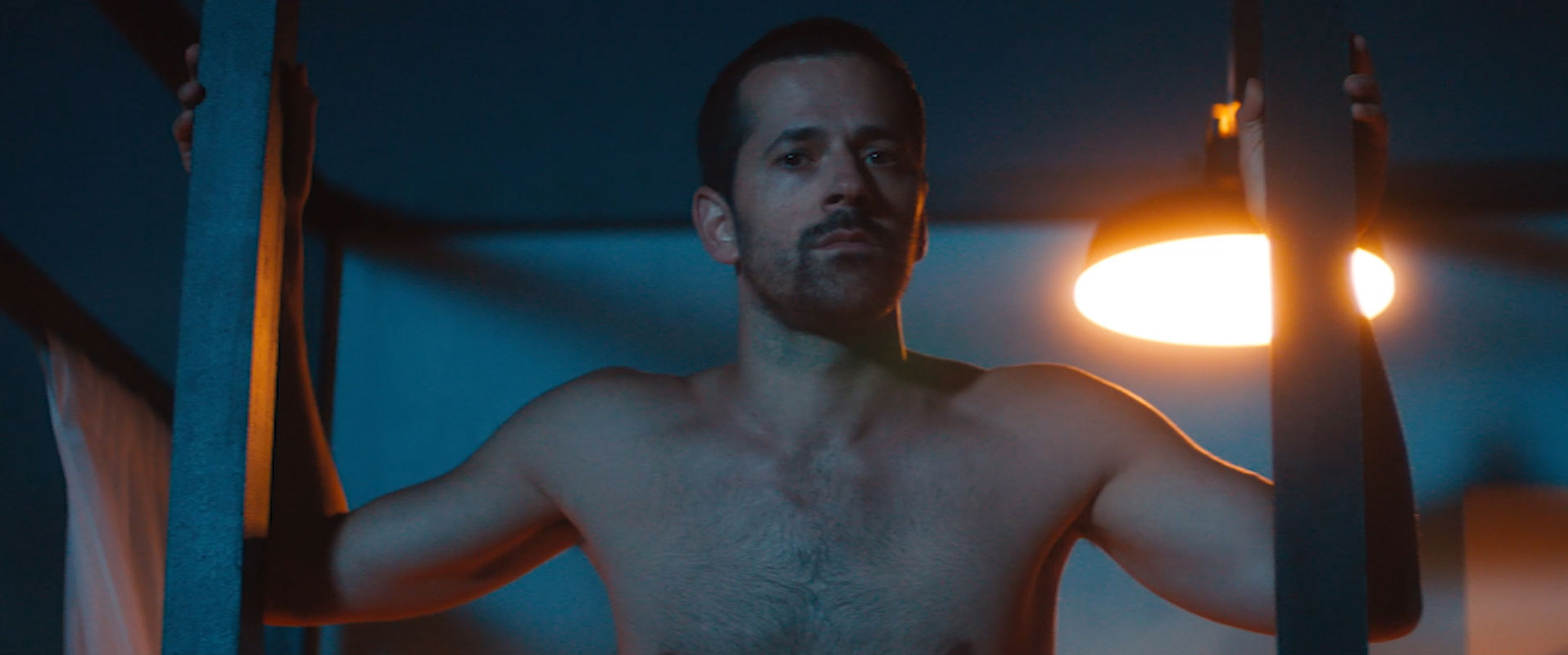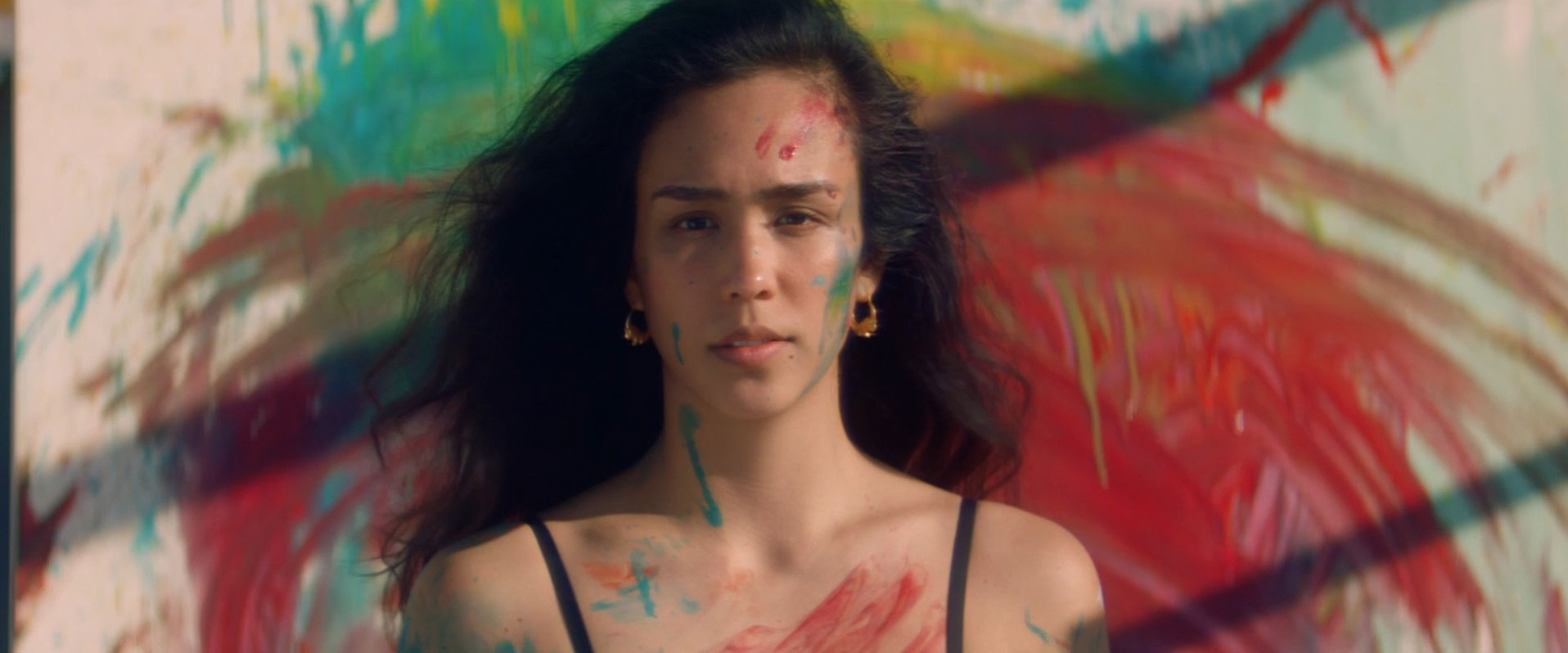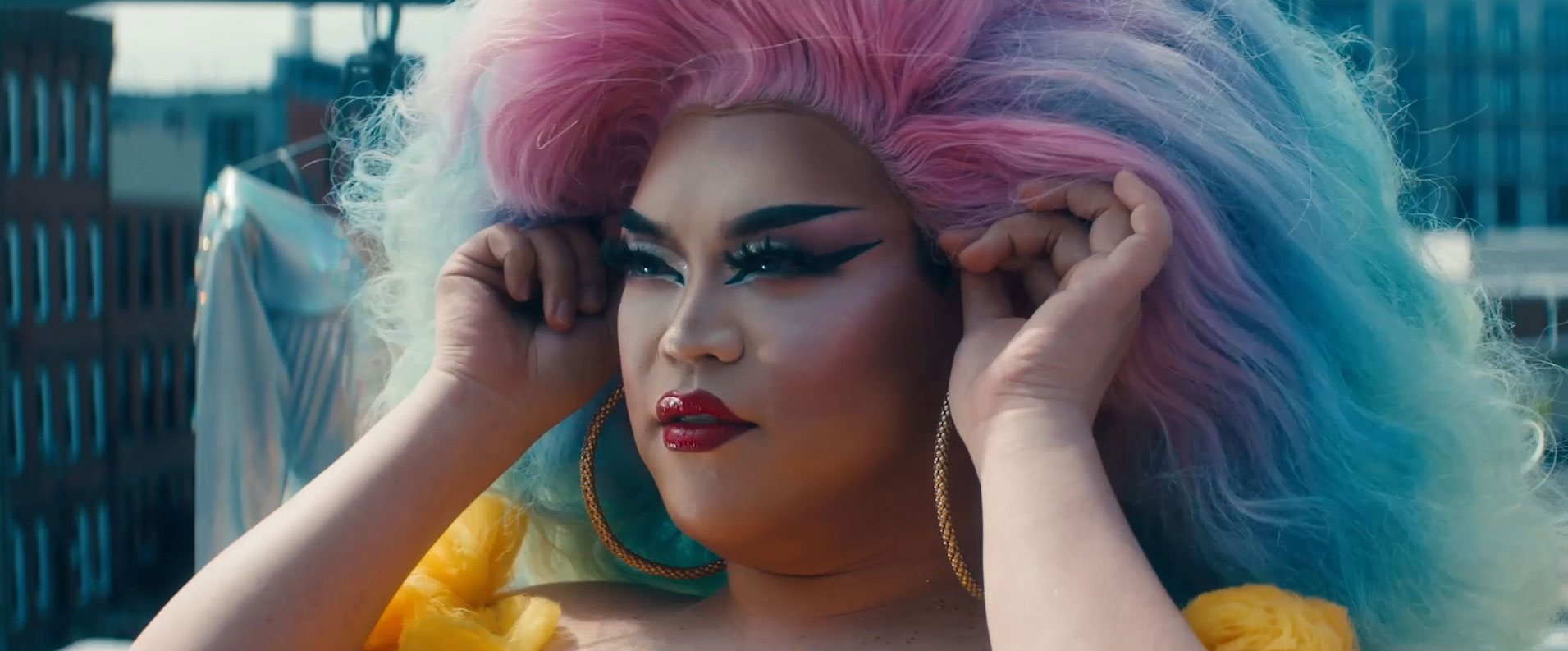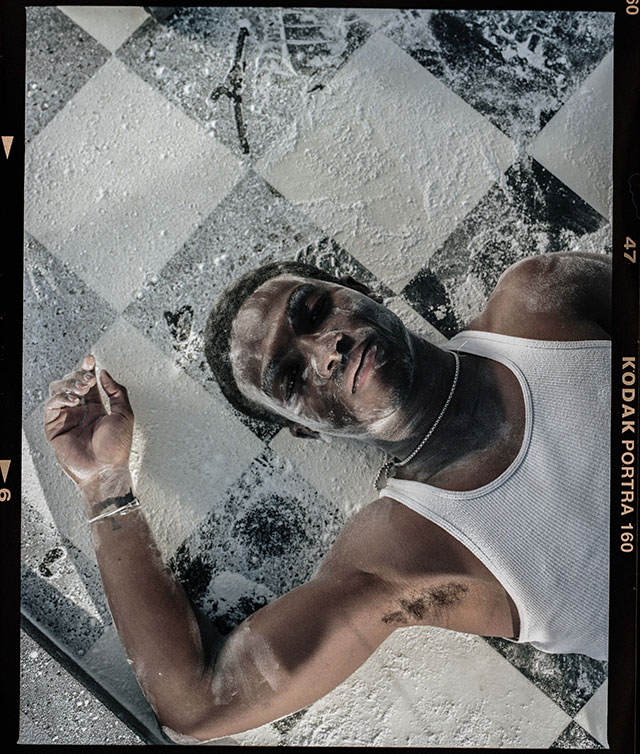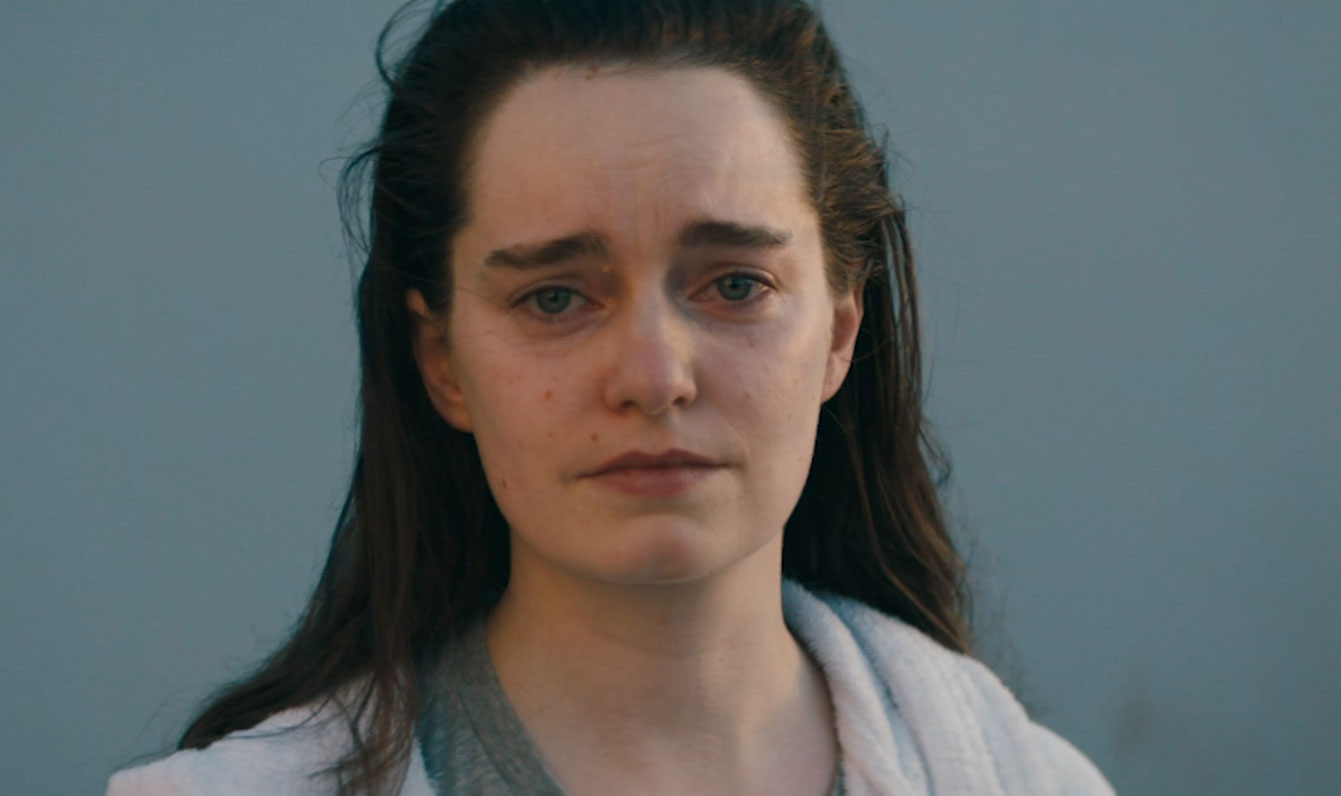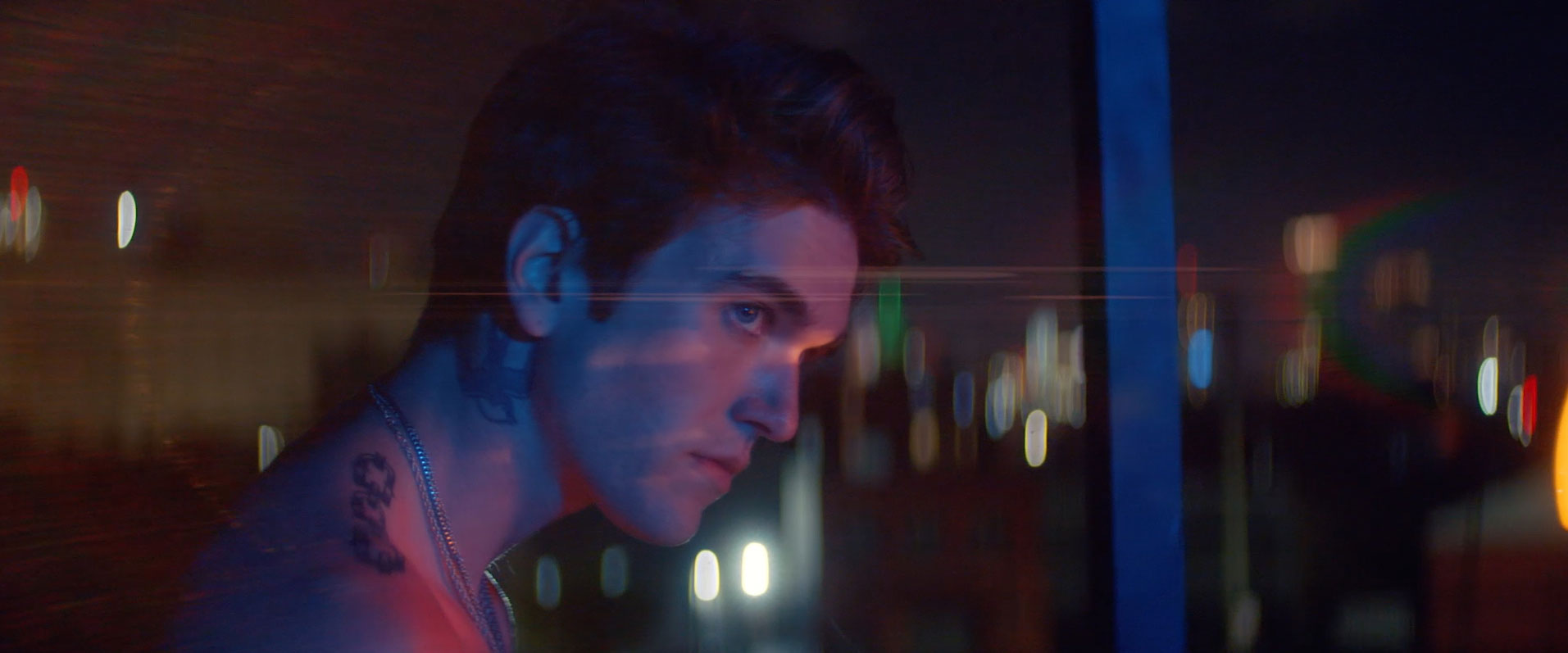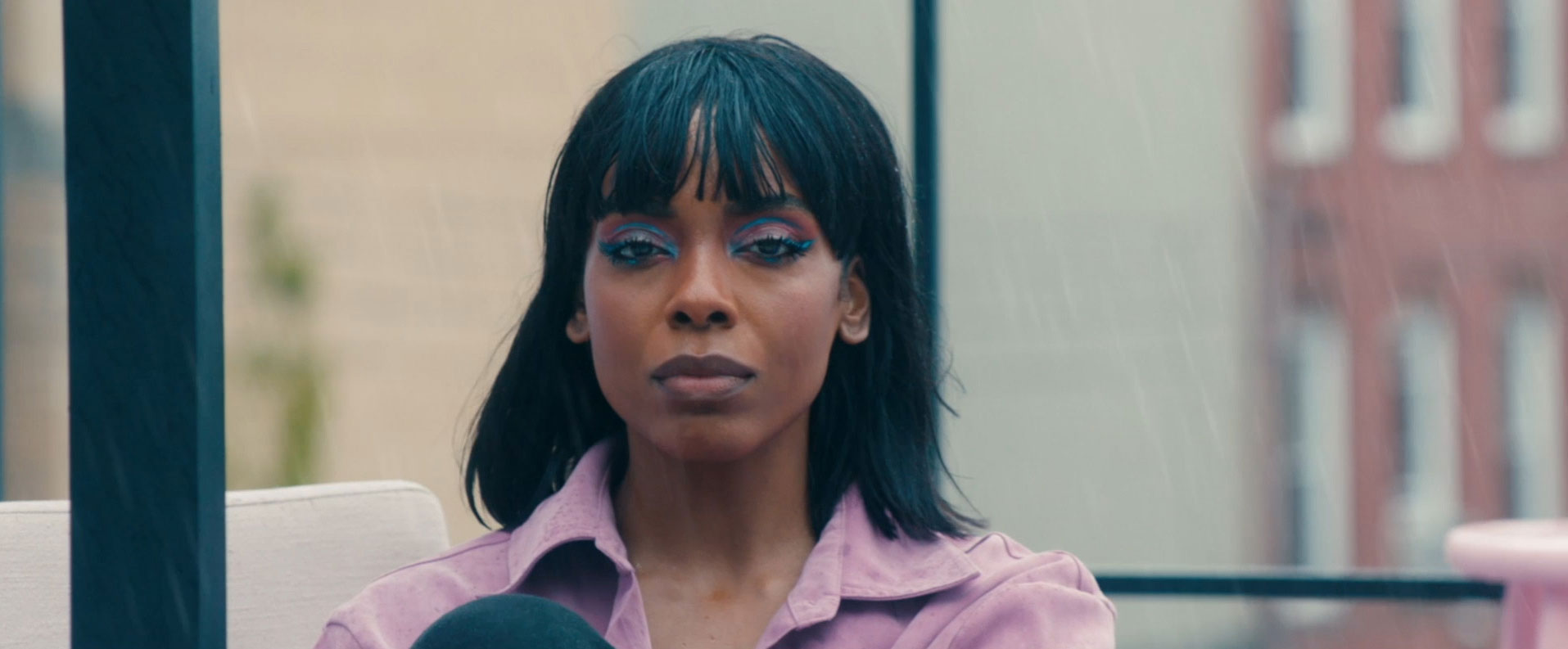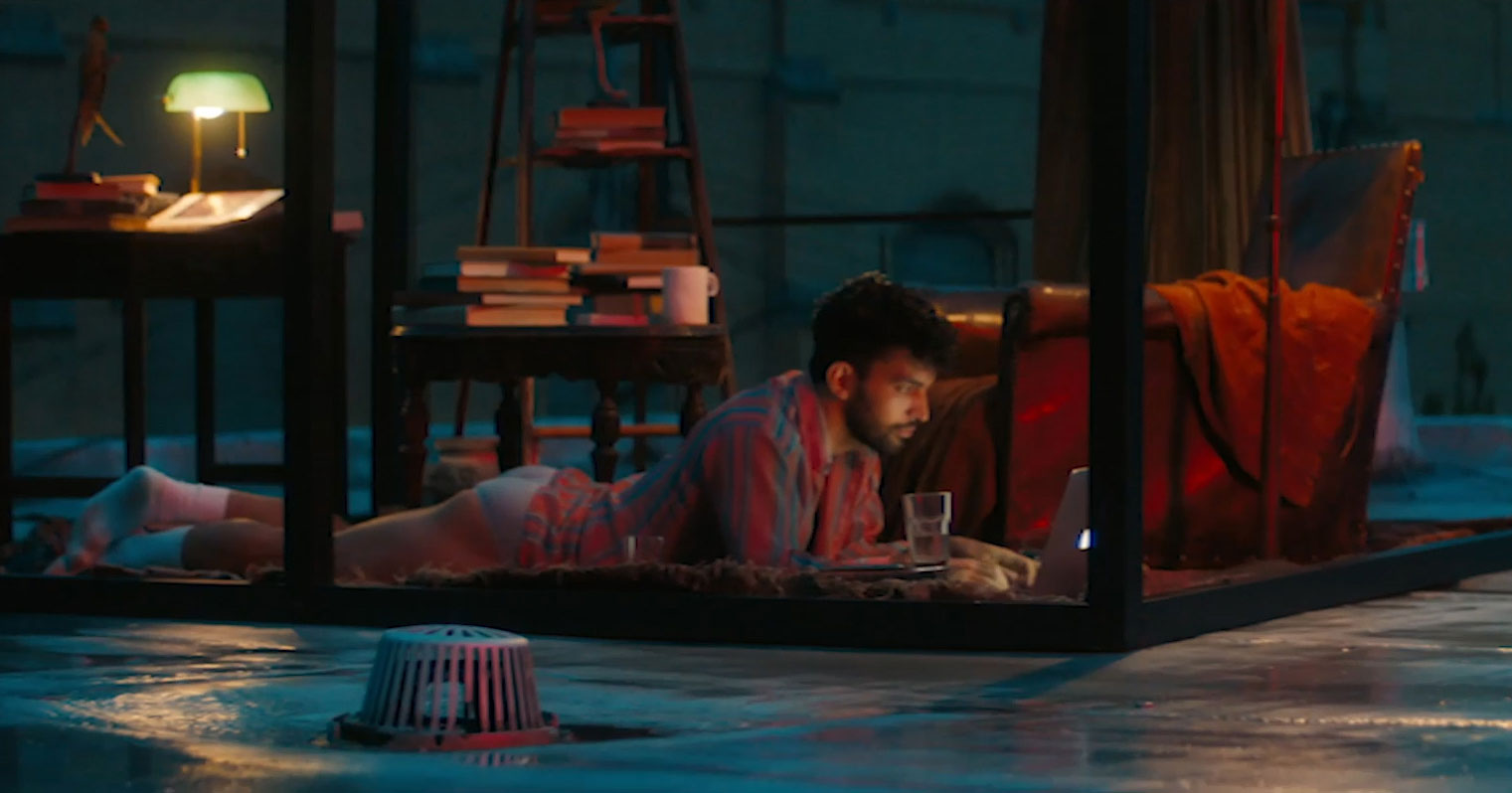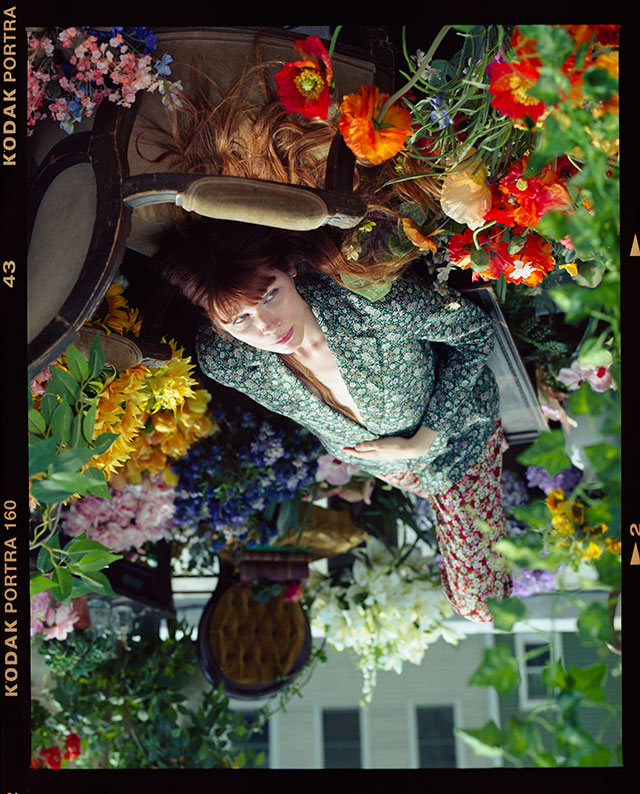What started out as a simple poem about loneliness during Covid, written by two former agency colleagues on opposite sides of the country, has grown into one of the more remarkable projects yet produced on the topic of mental health and the pandemic—a five-minute short film directed by Ezra Hurwitz, with narration by Sarah Jessica Parker and music by Sufjan Stevens, featuring theatrical, dance-infused scenes of despair and transcendence on a rooftop in Brooklyn.
Ezequiel Consoli, senior art director at Dentsu McGarrybowen in New York, and Kyle Harrison, copywriter at RPA in L.A., were a creative team at McCann a few years ago and often partnered on side projects. As Covid descended, Consoli began jotting down his thoughts about feeling isolated. He soon reached out to Harrison, and they began crafting a poem together.
Next, they reached out to Hurwitz—whom they'd met during their McCann days while pitching a Verizon job to directors. Hurwitz felt energized by the material and began to envision what a short film based around the poem might look like. The director, a former ballet dancer whose husband is in the New York City Ballet, ended up bringing many of his dancer friends into the project.
On a rooftop in Red Hook, Hurwitz filmed scenes with a staggering collection of talent within a frame representing a room. Stevens, a friend of Hurwitz's, agreed to provide music for the film. And Parker, who is on the board of the New York City Ballet, did the voiceover.
Check out the finished piece, titled "Inside & Outwards," below. It was produced with HunterPark Productions and serves as a mental-health PSA, promoting resources from the National Alliance on Mental Illness (NAMI-NYC):
The film features an incredible array of performers—dancers Sara Mearns, Robert Fairchild, Carlos Gonzalez and Maira Barriga; choreographer Emma Portner; actor Dharon Jones (recently cast as Riff in West Side Story); singer-songwriter Gabriel Kane Day-Lewis (son of Daniel Day-Lewis); singer/songwriter and makeup artist Ehlie Luna; creative director, musician and artist Brianna Lance; and drag performer Jasmine Rice.
Muse spoke with Consoli, Harrison and Hurwitz about the creation of the piece.
The poem
Harrison: It started with Ezekiel. He called me. It was just, "I had this idea. I wrote this rough script. Would you want to look at it?" To be honest, I thought it was going to be a four-day project. I took it and crafted it to be more like a poem. Put in rhyming stuff and just tried to highlight different elements of what was going on. We talked about drinking wine every night, about people losing their jobs and their lives and loved ones, even just buying plants or making new meals. We talked about how guilty you feel, feeling bad for yourself when you still have a job or have your loved ones.
Universal things, from as simple as cutting your hair or baking to this feeling of being unable to escape. Everything from the small things to the big things that we're all kind of feeling. Since the beginning, the script really hasn't changed too much. We're pretty close to the original, which is cool.
Hurwitz: I love the sentiment in it, and the novelty of it being an inner monologue, first person, which reveals itself to be the hero of the piece. And emotionally it really spoke to my experience and my community, what I felt like I was experiencing.
The shoot
Consoli: It was originally just going to be three stories, and then we blew it up to be 10 stories of different people, and each story had a personality to it. We went for the idea of going to a rooftop because it was an open space. We ended up partnering with Mary Howard [owner of Hook Props] and we built this set that looks really great.
Hurwitz: Shooting outside initially seemed creatively counter to the poem, because it's so much about being inside and in your home and confined. But I had the idea to create that same confinement outdoors, and I thought that was actually a really beautiful metaphor. In a lot of ways what spoke to me about the piece was how the introspection and looking inwards was allowing us to have this outward strength and outward empathy. It's that introspection that I think laid the groundwork for our continued reckoning with a lot of things in this country. Just having that time and space to really be with ourselves.
For me, especially, that space and time was very uncomfortable for a long time, where that inner monologue was very loud, and louder than usual. But in the poem I found myself getting to a better place, a more tranquil and calm place where I actually I wish I can hold onto this when life returns. I am running, and I'm eating healthy, and I'm doing all these things that I'm enjoying that are for my wellness and my mental health. I think that's the point of the piece—to allow viewers and the public and everyone to embrace this trauma and these mental-health challenges and be OK prioritizing themselves and their wellness, even if they're not dying of Covid-19 or completely disenfranchised, even.
Consoli: The purpose of doing it on the rooftop—first of all, it represented New York City, with the skyline and everything. And it was almost like the idea of being trapped in your own home but also wanting to go outside. There was a time when everyone was going to their rooftops to go out, at the beginning, when you couldn't go out much. It felt, creatively, like a very unifying decision for the overall experience New Yorkers were having at the time.
Hurwitz: One of the cast members, Robert Fairchild, who is also from Cats, the movie—and he used to dance with me at New York City Ballet—had been posting videos of himself on his roof, dancing, at the beginning of the pandemic. I remember thinking that on one hand it was so beautiful to see him against this brownstone skyline, and it was very inspiring and hopeful. But it also had this feeling of being trapped and perched up on his little lookout. So it was also a metaphor for having not just openness but also isolation up there.
Consoli: We were still in phase one. It was a very small crew. It was the director, the person assembling the set, and the talent, who would come one by one. We went beforehand to check out the space, but it was a remote shoot, basically.
The performers
Hurwitz: NAMI likes to describe the pandemic as: "We're not all in the same boat. We're in different boats, but we're in the same body of water." That's what I was trying to create [with the sets]. Each of the boats, or rooms, was shaped by a pre-production remote-collaboration process, where I asked them to send me some writing about what the quarantine had been like, what kinds of things they were doing. I scoured their Instagrams and pulled literal frames from their Instagrams to recreate some of their spaces—but elevate them in a more surreal way.
Luckily, I have some stunningly beautiful, talented friends. Sara Mearns, who is the blonde ballerina, I think she was literally the first person I ever filmed in my career. We trained together as ballet dancers. The truth is, it wasn't hard to convince people [to participate] because the situation for performing artists has been really bleak. Even as we return to work, they do not. It's still a really emotionally trying time for them. I experienced it firsthand, of course, because my husband's in the New York City Ballet. This was really an outlet for them.
Dharon Jones, who is the one in the kitchen—he just made his Broadway debut as the first Black actor to play Riff in West Side Story. I had never worked with him or met him. I had a friend connect us for this. He made his big debut on Broadway, and then it got shut down. I'm sure he would have been nominated, if not won, a Tony Award this year for that. It was an interesting time to engage people.
The voiceover
Hurwitz: We never knew how the poem would integrate into the work—if people were going to just deliver the lines to camera. But we thought it would be stronger to have one voice, like the collective unconscious. Sarah Jessica Parker is very involved in the New York City Ballet, and she's very invested in the well-being of the dancers. I reached out, and she just said yes. We couldn't believe it.
Consoli: She was so nice, and she gave us some opinions on what she felt could be more pointed and a bit more specific in the script. It's cool because it originally was written to be a self-monologue kind of thing. And she is the epitome of the coolest self-monologue, and also very New York City oriented. It was amazing that she said yes to this.
Hurwitz: She is so iconic as a fixture of New York. Sex and the City, obviously, is narrated entirely by her inner monologue. I was almost like, "Is this too much of a thing? Is this going to take away from the piece?" It had not been written with her in mind, or anyone in mind. We reapproached the words afterward, to make sure they felt right. Also, the world changed 907 times between when we shot it and when we locked picture. So I felt like we all just wanted to say slightly different things, and she was amazingly collaborative in working with me and sending voice memos back and forth. I cringed at having to ask her to repeat things, but it was an amazing opportunity to work with her, and she was incredibly generous.
The music
Hurwitz: I reached out to Sufjan Stevens, who's someone who I know from the New York City Ballet. He's composed a lot of music for the Ballet. I hadn't worked with him before in this sort of collaborative way, but we are friendly. He makes very evocative music, and quiet music sometimes, too. He had been nominated for an Oscar for Call Me by Your Name, which was very much how I saw this project, initially—which is funny because it didn't end up being anything like that. But I basically made a very pretty PDF and sent it to him, along with the script. And I said, "What do you think?" And he didn't seem to think twice. He said, "Sure. Give me the edit and I'll score it." He lives on his own planet of artistry and genius. We're super grateful for his contribution.
Harrison: I scored it myself and I was like, "Oh, this is really cool, I'm glad I made this." And then a week later, we found out Sufjan was on board. It was like, "I'll push my score to the side for now."
The result
Consoli: We originally just wanted to make art and make something everyone felt good about. But then we felt like NAMI was the right place to reach out to and see what they thought of it. And then they loved it. It was a pretty easy partnership.
Given the new nature of how production has been, it was pretty intimidating to make this. We're really happy with managing to create something we're very proud of.
Hurwitz: In my mind, and especially in HunterPark's vision for this project, we wanted to not only make something beautiful and inspirational but to partner with a foundation, a nonprofit mental health partner, that could turn this piece of art into action—to take it one step further in terms of its benefit for people and to give them actual steps to take toward resources and support.
I've become much more educated in the ways of advertising and film. Earlier in my career, I had no idea there was such creativity, and desire and ambition for this kind of content [within the ad world]. As a director, it's so rewarding to be able to not just make sales-driven commercials but to also lend the craft, and skill and effort to do something like this. For all of us, this huge community of collaborators that came together, it served a purpose and gave us an outlet at a time when we didn't have much going on. When Ezekiel and Kyle approached me with the poem, I don't think they or I thought this would be what we would come up with. It's awesome to see it blossom.
See a BTS film about the making of "Inside & Outwards" here:
CREDITS
Cast
Sarah Jessica Parker
Sara Mearns
Dharon Jones
Emma Portner
Ehlie Luna
Gabriel Kane Day-Lewis
Robert Fairchild
Brianna Lance
Jasmine Rice
Carlos Gonzalez
Maira Barriga
Director & Co-Creator Ezra Hurwitz
Creative Director & Co-creator – Ezequiel Consoli
Writer I Co-creator & Kyle Harrison
Production Agency - HunterPark Productions
Mental Health Parnter – NAMI-NYC
Produced by Bethanie Schwartz, Lauren Tuttman & Marissa Velez
Music by - Sufjan Stevens and Lowell Brams, from the album Aporia
Choreography by - Justin Peck
Contributing Fine Artist - Marcel Dzama
Cinematography by - Gaul Porat
Line Producer - Olivia Kavanaugh
Supervising Producer - Michael Michelin
UPM - Liam Christoffers
Gaffer - Rommel Genciana
Steadicam - Calvin Falk
1st AC - Jasmine Chang
Production Design by - Griffin Stoddard & Mary Howard
Set Dresser - Megan Nishiyama, Michelle Johnson, Emmet Page
Set Assistant - Giorgi Miavandadze
Wardrobe by - Rebecca Dennett
Editorial - Modern Post
Editor – Will Town
Post Producer – Sarah Cassel
Assistant Editor - Lauren Friedman
BTS Editor – Jean Taylor
Colorist - Sofie Borup I Company 3
Sound Design & Mix - Raphael Ajuelos
VFX Artist – Johnnie Semerad
Strategy Consultant – Bridgette Nilson

